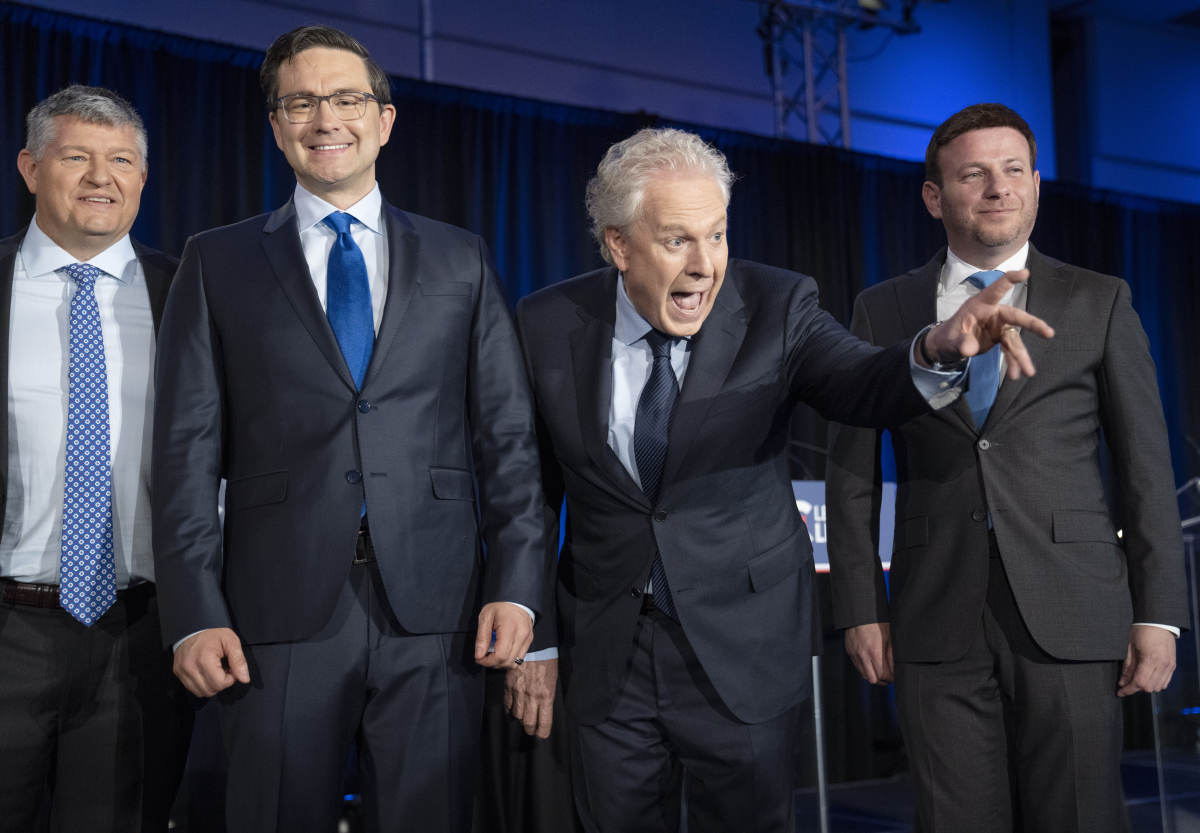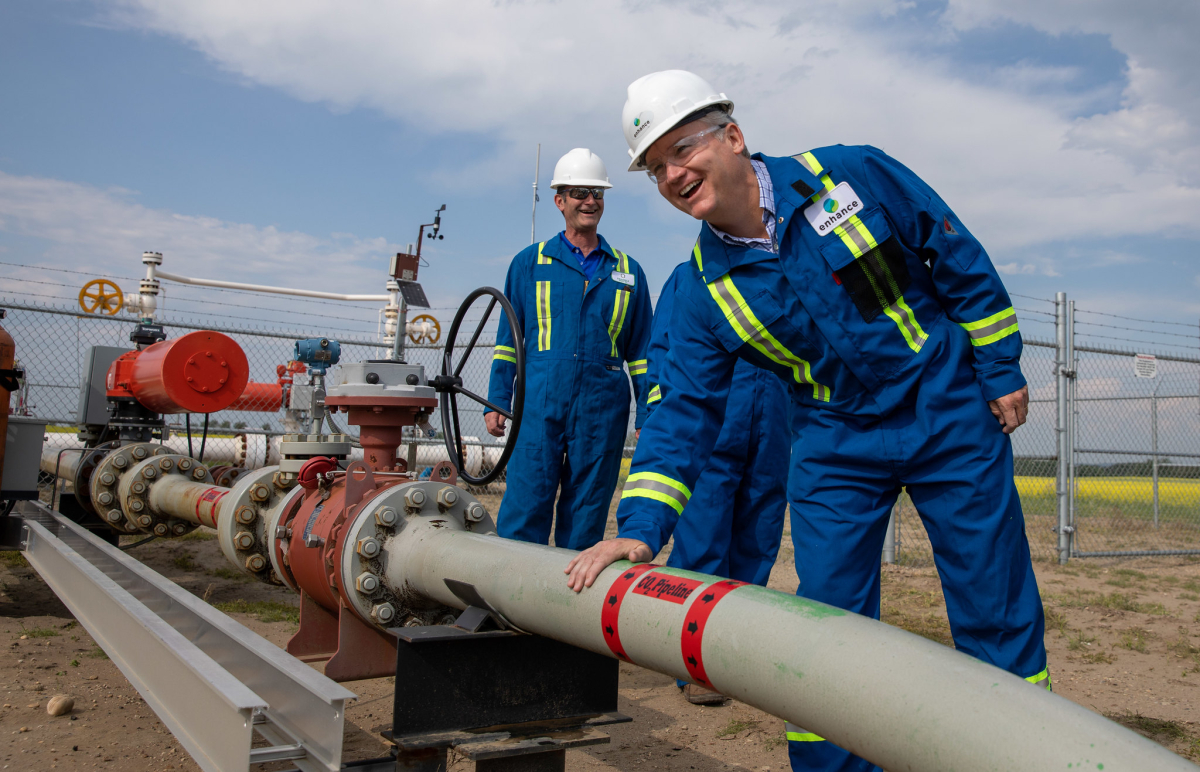The man with a plan

On the eve of a landmark international summit, Canada’s federal government wanted to make one thing clear: protecting our environment was an urgent matter.
“We support this truly global conference of leaders because we believe that nothing less is needed,” one government official said in a newsletter published the winter before. “…The hour is late. Given the nature of the danger and the complexity of the issues to be resolved, (the summit) should have happened long before this.”
You’d be forgiven for not immediately guessing which international conference this was (Rio’s Earth Summit) or when it happened (1992). Or the fact that these words came from the environment minister in a Conservative government (Jean Charest), who showed up to the conference with an environmental plan and a pledge to “stabilize” carbon pollution and other greenhouse gas emissions by the year 2000. (It didn’t, but to be fair, neither did subsequent governments.)
For the Conservative Party of Canada, a lot has changed in the last 30 years. The same party that signed onto global environmental action in Rio voted against declaring “climate change is real” last year. This week, Canada’s National Observer published a deep dive from environmental journalist Arno Kopecky on the Conservatives angling to get their party talking about climate.
At least some of this environmental about-face is thanks to a three-decade oil boom that “shifted the party's centre of gravity to Alberta's fossil fuel industry just as that industry was entering its Big Tobacco moment with respect to climate change,” Arno tells me.
“Fossil fuel production became inextricable from Conservative identity — an attack on one became an attack on the other.”
Which poses a major conundrum for anyone aspiring to lead the Conservatives to general election victory: climate change is a dirty word to the CPC’s most fervent supporters — but it’s getting tougher to win over the Canadian population without a plan to tackle the environmental threats in our own backyard.

Charest is out to capture the votes of Conservatives who care about climate. Of the six candidates running to become the next CPC leader, he’s the only one with a climate plan. If you ask Arno, “you could park a glacier between Charest’s plans and the average climate scientist’s idea of ‘credible,’” but it is, he points out, more than anyone else has done so far.
“I think it takes courage to bring climate change up at all as a Conservative leadership candidate,” he tells me. “Whether that says more about Charest or the party he wants to lead, others will judge for themselves.”
Charest isn’t entirely alone, either. There’s a team of like-minded political figures behind him who recognize Conservatives need some kind of climate policy if they expect a broad spectrum of voters to take them seriously in a federal election. Conservatives for Clean Growth — a group co-chaired by Harper-era cabinet minister Lisa Raitt and former Alberta MLA Jim Dinning — has offered its services to any leadership candidate who’ll have them.
“The Clean Growth argument is basically that there's a ton of money to be made in renewables and what could be more Conservative than that?” Arno explains. “It's a strong argument that shouldn't be partisan at all, but what's notable about the Conservative angle is that none of them suggest any decline in oil and gas production.”
Scientists, on the other hand, have pointed out that burning fossil fuels — like oil, gas and coal — is the main driver of climate change. Going big on renewable sources of energy like wind and solar is important, but tackling the climate crisis requires action on two fronts: more renewables, less oil and gas.
You’re not likely to hear Conservatives talking about a breakup with fossil fuels. Pierre Poilievre, the apparent front-runner in the CPC leadership race, has tried to make the case for “clean” Canadian oil — a statement one academic referred to as “wildly inaccurate” — and has vowed to resurrect fossil fuel projects axed by the current federal government.
Though he hasn’t made any specific commitments, Polievre says he’ll have a climate plan “well before the next election.” But it’s possible party members won’t see it before leadership votes are cast in September. Given how the CPC base thinks about climate change, that may not be a problem.
“The Conservative leadership race operates in a totally different universe than a general election, with its own laws of electoral physics,” Arno says.
“Poilievre knows this, of course, but it also seems to suit him temperamentally. I don't think he's pretending not to care about climate change. It's genuine.”

If the Carleton MP does become the next Conservative leader, Arno doubts he’ll go the route of Erin O’Toole, who spent last year’s election trying to convince voters a Conservative government would take climate change seriously. O’Toole was barely out of the job before his party jettisoned a Conservative take on carbon pricing, and everything Poilievre has said so far suggests he would go one step further and seek to undo the Liberals’ version.
A CPC led by Poilievre might instead try to downplay climate polls and zero in on hot-button issues like inflation and housing, Arno suspects, “flaunting all the things that make progressives shudder, just as Republicans have done in the U.S.”
“Whether it'll work in Canada is the billion-dollar question,” he adds. “But Poilievre has a lot of things going his way: Canadians are tired of Trudeau, inflation is running wild, everything seems to be falling apart — there's a ton of discontent waiting to be exploited, and no one knows how to blame Trudeau for all of it like Poilievre.”
Reads of the week
- Save Old Growth organizer fears his activism has made him a target for deportation
- Canada’s pork industry keeps pigs in feces and filth
- Judge throws the book at TMX treesitter Tim Takaro
- Canada can hit its conservation goals with a huge assist from Indigenous initiatives
- Toronto school board celebrates opening of centre for Black excellence
- We still haven’t learned from our COVID-19 mistakes


